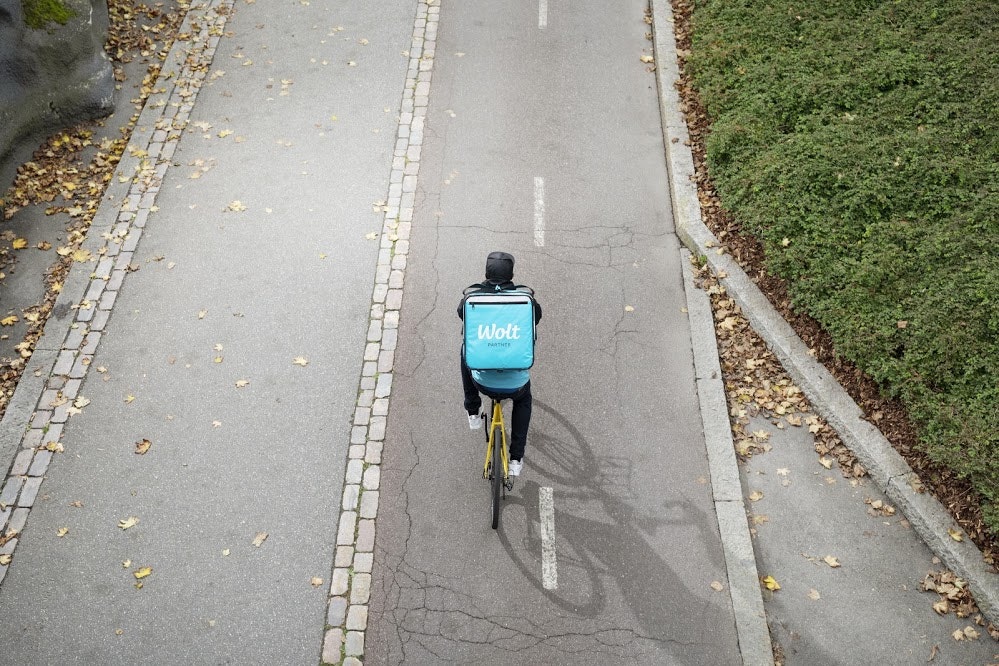Today the Spanish government has presented an agreement, reached with the Spanish Confederation of Business Organizations (CEOE) and General Workers Union (UGT), on the text for a new 'Riders’ Law' — set to establish a “presumption of employment” for couriers.
The legislation, led by the left-wing Podemos party’s Labour Minister Yolanda Diaz, will be the toughest regulatory reform to the gig economy from any European government to date.
Following on from a ruling in the Spanish Supreme Court, it’s reported that the law will give delivery platforms — such as Glovo, UberEats and Deliveroo — three months to employ riders. It will also oblige platforms to be transparent — publishing details of any algorithms that affect working conditions.
The agreement comes in the wake of a decision in the UK’s Supreme Court, and an order from the Italian Labour Inspectorate, both saying that gig workers should be given more employment benefits.
A blow to a local startup star
Forcing all workers to have an employment contract could be a huge blow to one of Spain’s most lauded startups, Glovo, whose rapid national and international growth has been underpinned by a gig economy model.
The Association for Spanish Startups, which represents the country’s entrepreneurial ecosystem, co-authored an open letter last month warning that such a law could see Spain “lag behind other great European, American or Asian powers.”
Speaking to Sifted ahead of the agreement, Glovo cofounder Sacha Michaud said that obliging platforms to employ all riders would be a huge mistake.
“We don't think it's positive for anyone,” he argues. “Spain is making it a position that the gig economy is [actually] illegal. So Spain is taking a radical position: taking a position totally different to the EU and above all, any EU country today.”
Michaud said that Glovo would have to review the text of the legislation and adapt as best it can, but a strict employment model for the whole fleet would likely mean a scaling back on ambitions to expand to 400 smaller Spanish towns and cities.
Sifted understands there is a possibility that delivery platforms could still use self-employed workers, via subcontracting, if they can prove the workers are autonomous. This, however, won't be completely clear until the full legislation is published.
Currently, Glovo works with around 13k couriers in Spain, who are paid based on how many jobs they complete. Recognised as self-employed workers, they must pay social security contributions themselves, and do not benefit from rights like holiday and sick pay.
Like many of its competitors, Glovo argues that contractors like this arrangement, saying it gives riders flexibility that many value. Michaud points out that thousands of couriers have taken to the streets in Spain to protest, calling for the right to choose self-employment if they prefer it to an employment relationship.
Double standards
The law, as Glovo sees it, has been drafted along ideological lines by the left-leaning government, as a means of unfairly singling out tech companies.
“The government is targeting the tech sector and digital economy with this regulation,” according to Michaud. “Government should be embracing something which is going to bring huge value to the economy in the future.”
Michaud said that that the law would create a punitive double standard for tech companies, as it would not affect other areas of the economy that also make use of self-employed workers.
He highlights the example of the logistics sector, where it’s estimated some 500k self-employed truck drivers are active.
“We're very critical of this. What Spain has done is say, ‘OK, we're not to touch the traditional logistics companies, even though they work in exactly that similar way,’” says Michaud.
“If you're looking at regulating, in my opinion, you should be looking at the big picture. [That means, though,] not regulating very quickly, a very small segment which is very modern but actually works in the same way that traditional companies have worked with self-employed workers in Spain, for many, many years. In fact, decades.”
A middle ground
Michaud says that Glovo welcomes regulation, and was hoping for laws that would allow the platforms to run a mixed model, employing some riders, and giving better rights to those who would rather stay self-employed.
“We'd be looking for some sort of mixed relationship where some of the riders have a more fixed and continuous relationship,” he explains. “And then you'd have a percentage of the riders who can work on multiple platforms, who are maybe combining with other jobs, or actually just really want to have total flexibility in the way they work. But the second group that I just mentioned, they would also have certain protections. ”
More protections could mean guarantees of a minimum wage, contributions to social security payments, as well as holiday pay and sick pay. Michaud is hopeful that this kind of compromise might be reached in a new European Commission consultation on the gig economy.
“I think that's where the EU is pointing at. Those are things that are coming out of a lot of conversations: that you can actually protect freelance workers a lot more than they are today,” he argues. “We're certainly at a communication level in the EU so there is a dialogue.”
Michaud says that the Spanish government has chosen not to open dialogue with either riders or tech platforms, and is legislating based on populist electoral promises.
The Riders Law is the latest in a string of decisions going against gig economy platforms in Europe. Glovo now hopes it can find more sympathetic lawmakers in Brussels than it has found in Madrid, and that EU law will end up overruling Spain’s new hardline position on the gig economy.



